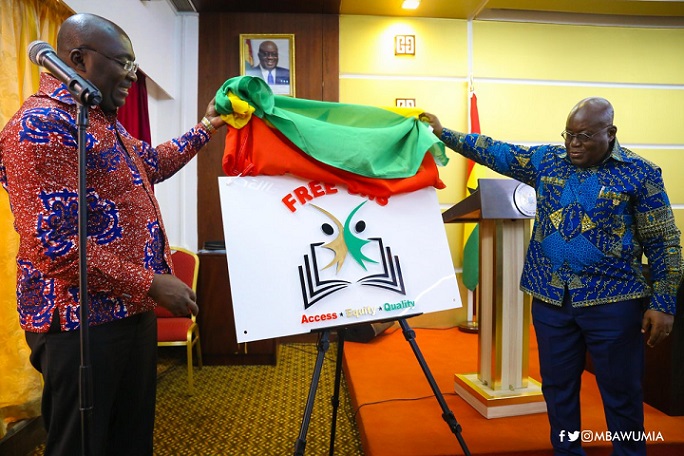- …current funding not sustainable
The current funding module of the Free Senior High School policy is not sustainable and needs to be reviewed urgently, according to Dr. Steve Manteaw, Co-chair of Ghana Extractive Industries Transparency Initiative.
More than GH¢1.8billion of crude oil revenue goes into financing the policy every year, but Dr. Manteaw says this approach is not sustainable because oil is a finite resource and the policy puts an extra burden on government. He therefore believes corporate bodies can be encouraged to contribute to the policy.
“Today, we are at a point where Free SHS risks collapse if we don’t pass the E-levy; the economy is in dire straits because over GH¢1.2billion of oil revenue goes into financing Free SHS on a yearly basis, and it is not sustainable,” he said.
Nearly five years down the line, the policy’s long-term future remains uncertain due to dwindling production volumes, falling revenues against rising expenditure, and ballooning public sector debt and lack of diversified funding sources.
Given that oil can be depleted, Dr. Manteaw said the first mistake the country made was to use a chunk its oil revenue to finance Free SHS education instead of using the returns on investment of such revenue: “What happens to the education of these children if the money gets finished or the resource becomes depleted?”
Explaining further, he said: “I do recognise returns on the investments will not be adequate in financing Free SHS; that is why government should have prudently engaged key stakeholders prior to introducing the Free SHS”.
Free SHS was introduced in September 2017; but prior to that, several corporate entities – including COCOBOD, Unilever, MTN and Newmont, among many others – had scholarship packages for second cycle students across the country. Most of these corporate grants however ceased to exist after introduction of the Free SHS.
In the year that Free SHS was introduced, Dr. Manteaw said, there were close to 13,000 SHS students on Cocoa Board scholarships alone.
“What happens to that money? Because we did not consult them [Cocoa Board], that money was not channeled to support Free SHS; it was withdrawn. So, in effect, we let go monies that would have lessened the financial burden on government in terms of financing Free SHS.
“Most companies in the natural resource sector – such as AngloGold Ashanti, Goldfields and others – all have scholarship programmes; but we did not engage them, encourage them to channel them into a common fund to finance Free SHS, which would have reduced the funding burden on government,” he said.
Review necessary
Last year marked ten years of commercial oil production in the country, and Dr. Manteaw – who was asked what he makes of the ten years of oil – said the major lesson is the need to review the Free SHS, especially from the perspective of sustainability.
“Government can encourage the private sector to support the policy. Most companies in this country have huge corporate social responsibility budgets. MTN has set up their own foundation; these are huge budgets, we can engage them and encourage them to support education as part of their corporate social responsibility.
“We can get COCOBOD to return the money that it used to allocate for financing the Cocoa Board scholarships. Unilever has similar scholarships for children, all these have been withdrawn because we did not think through thoroughly and did not think sustainability. So, going forward, there are lessons to learn as we reprioritise,” he advocated.
Alternatively, he said, government can also increase VAT marginally in order to fund education.










